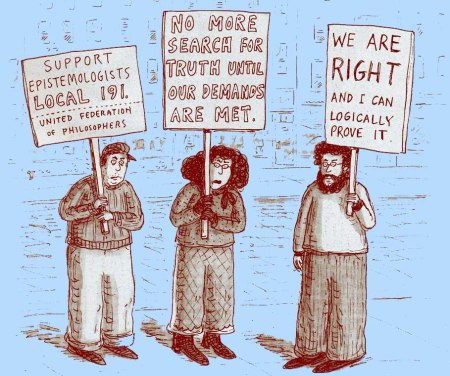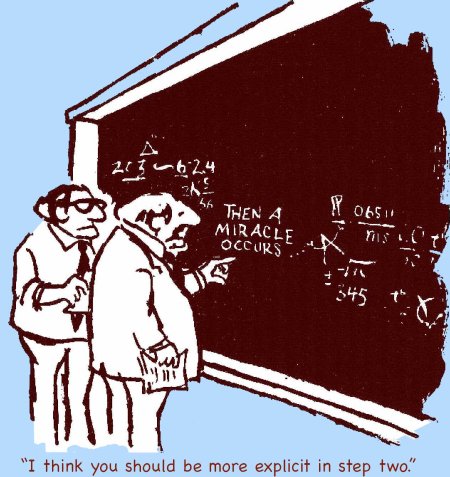Another rainy day where I cannot do anything in the garden. I wanted to find a new home for a couple of catmint (nepeta) plants that I bought to please my cat family, transplant chard and tomato seedlings, peg down the new runners of the strawberries into little pots, remove weeds, plug sage and lemon balm leaves for drying, and check the fruit trees and strawberry plants to remove leaves that are infected with fungi.
All this important work has to wait, so the second best thing to do would be playing piano, guitar, or percussion. Yet for one or the other reason I feel a bit weary and lethargic today, maybe it’s the weather or some hormonal imbalance or the iron deficiency caused by my vegetarian diet.
Short of going to bed again and sleeping the whole day, I resort to the third best thing to do, which is turning on the computer, checking the emails, and reading other peoples blog posts, comments, discourses, essays, studies, and analysis.
I greatly enjoy well formulated political, social, economical, philosophical, and scientific essays. I thoroughly examine comments, compositions, dissertations, and analysis despite the fact that I seldom consider them as correct, relevant, substantial, essential, necessary, or ultimately true.
Words are words just as things are things.
These papers and digital text files tell us a lot about how the working memory areas in our brain function, they tell us how the words in our brain, which are in fact link lists pointing to acoustic, visual, emotional, episodic memories and to other related (associated) words, are correlated, compared, taxed and weighted with or against other words and how the conclusions are made either according to logical rules (derived from grammatical rules) or via the magic of pattern recognition, represented and vaguely defined by the terms common sense, intuition, imagination, creativity, phantasy, vision.
Pattern recognition occurs usually outside the working memory areas and is therefore by definition subconscious because the working memory (also called central executive) is nothing else than our consciousness. Forget about qualia, sentience vs. sapience, mind vs. body dualism, and a few thousand years of philosophical bickering, consciousness is just the group of momentarily active link lists (represented by the markers which we call words) inside the working memory plus the signals from the sensory system, the amygdala, and other regions of the brain, which reach the working memory and are able to activate parts of it to start a process of correlating, weighing, amending, correcting, changing, and rearranging the link lists (aka the words).
Everybody can check the validity of the above mentioned assumption by remembering situations where a nasty headache or other chronic pain suddenly is not felt because her/his attention is caught by certain important sensory signals indicating impending danger which needs an urgent, instant response. Such signals will cause the working memory to shift focus and use all available capacities to react properly to the suddenly and unexpectedly emerged threat.
The chronic pain will be forgotten until the sudden threat is dealt with.
These rough and blunt statements, ending and making mute all discussions about consciousness, mind, soul, free will, etc., were not the reason for writing and publishing the text that you are reading now. I only mentioned this en passant to lay the groundwork for a universal assessment of all the in the fourth paragraph of the text mentioned political, social, economical, philosophical, and scientific essays, comments, discussions, and analysis.
After the sharp shooting introduction the reader probably will guess that I judge all this papers and digital text files with skepticism, leeriness, suspicion, sympathetic amusement, or (at utmost) critical appreciation.
Right.
What I forgot in the introduction: religious believers shouldn’t read this blog post. Please stop here, I respect you, I care about you, I love you, peace!
Humans made a great step to understand the world around them when they introduced the principle of causality into their philosophical discourses. Causality is of course not compatible with religious and ideological superstitions, so John Locke, David Hume, Thomas Hobbes, Baruch Spinoza, Voltaire, Diderot, and their contemporaries had to be careful not to attract the suspicion and ire of the religious establishment (an agency used by the ruling aristocrats and monarchs to keep the lower classes in check, an agency empowered to annihilate any new and potentially dangerous ideas plus the individuals which articulated such ideas).
The texts of the mentioned philosophers may be carefully worded, yet it is very clear from their content that all eminent thinkers of The Enlightenment left religious and ideological superstitions and their various respective iterations behind when they introduced the three main principles of “criticism, analogy, and causality.”
“There can be no truce between science and religion.” (John B. S. Haldane)
Causality was btw. the fundament on which the principles of evolution through natural selection, of classical (Newtonian) mechanics, of thermodynamics are based. None of these scientific theories would be possible and plausible without a firm belief in causality.
(Guess why religious conservatives in the USA fume about evolution and have introduced the theory of creationism? How little has changed — now like then religion is a most useful tool for the rulers to keep the masses in check.)
In the many decades since the enlightenment an understanding has evolved, that the principle of causality is not sufficient to define and comprehend the world, so causality was enhanced to multiple causality (or multiple causation). Philosophers introduced and promoted this amended form of causality under various names, the basis axiom (the basic idea) though was always the same and is easily to describe: Any result has multiple causes (factors), and one cause can lead to results in multiple areas.
This sounds pretty clever, but as it came out in the end, even the improved theory is a crude simplification and insufficient for understanding the world.
Well, lets try it again and expand the theory again: Causes are now called (considered to be) forces, movements, determinants, factors, vector, etc.
Depending on the chosen name (term), they can have amplitude, direction, mass, velocity (kinetic energy — motion), they can be particles or waves (quantum mechanics).
They are influencing each other, they are related and interconnected with each other, their number is infinite.
This sounds even more clever than multiple causation, the snag though is, that our working memory can only hold between 8 and 16 items (views about the correct number differ) in evidence at the same time which is awfully and sorely inadequate for dealing with problems and understanding situations where an infinite number of items are involved.
Thank goodness, that we have mathematics (probability theory, network theory, chaos theory, mathematical statistics) and powerful computers. Thank goodness, that we still have pattern recognition, where millions of synapses can be involved in a single process and ergo millions of items can be correlated in one go. Thank goodness, that we are equipped (or some of us are equipped, to be precise) with common sense, intuition, imagination, creativity, phantasy, and vision (acumen).
In many instances patter recognition in its various manifestations though may be still a crude and inert tool to even partly and approximately understand a problem or comprehend a situation.
Who claims to completely understand quantum mechanics?
I wrote at the start that words are words just as things are things. If it sounds like a word, looks like a word, smells like a word (just joking, words normally smell of nothing), it must be a word and it should not be misunderstood or confused with anything else.
Words can be ambiguous and vague, they can detract and mislead, can conceal and deceive, they can be euphemisms, metaphors, metonyms, they can have multiple meanings (polysemy), and they can have different meanings for different people.
That is the reason why the languages of mathematics and music use signs instead of or in addition to words. The signs in music and even more in mathematics are clearly defined, universal, and not prone to misunderstanding, misinterpretation, and reinterpretation.
Laws are word based and for that reason the essence, implication, and intent of a law is often disputed and armies of lawyers try to stretch the meaning of a legal text and squeeze out an interpretation that is favorable to their clients.
Twisting and turning words has been the preferred sport of warlords, politicians, clergymen, industrialists, ideologists, self declared prophets, and other charlatans, pied pipers, con artists throughout human history. We humans fell for them many times because of their powerful language, their skillful use, abuse, and misuse of words!
So: you have the words dignity, honor, destiny, legality (rightfulness),morality, justice, reality, and truth (or even “absolute”, “naked”, and “ultimate” truth). You have the words blessed, sacred, spirit, soul, heart,mind, qualia, god (or gods), devil (or devils), angels, saints, fairies, nymphs,satyrs, gnomes, demons, ghosts, you have heaven, hell, and reincarnation orafterlife.
The meaning of all these words is subject to countless variations, mutations, transformations, modifications, conversions, permutations, and whatever else. What one makes of the listed words and what weight, importance, and relevance one attributes to them is everyone’s personal business.
Because of this fact it is evident and probably not widely disputed that none of the many belief systems is universally accepted and that beliefs vary greatly.
So: If the listed words mean different things to different people, how can they ever be universal, absolute, definitive, true? How can beliefs be universal, absolute, true, when people believe in so many different things and their beliefs are not too seldom completely contradictory?
People believe in god (or gods), in exorcism, in creationism, human exceptionalism, in divine rights, in The Rapture and The Second Coming, in the reinstatement of the caliphate, 72 houris, and eternal erection. Some people believe in free trade, free markets and stock markets, quantitative easing, fiat money or the gold standard, and eternal growth of the economy. People believe in the inevitability of a proletarian revolution (sigh). A significant portion of the global population believe in knocking or spitting three times onto or into something, others believe in government statements and reports, in statistics, and in the evening news.
The great George Carlin would have known how to name that all properly but it is my immutable policy not to use derogatory terms in writings, therefore I observe now a moment of silence …. …. …. ….
The valued reader may fill the empty space with terms of her/his choosing.
Do I myself believe in anything what I write, do I consider my elaborations as the ultimate wisdom, do I take the results of my pondering deadly serious, are my statements definitive and final?
Of course not! This text here and all similar texts are exercises in composing and formulating, they are often not more than joyfully playing with words, and they most times just make fun of the experts and specialists, of all the knowledgable, competent, bright, distinguished, illustrious personalities.
Did I write this blog post to display intellectual bravado? Maybe, but if it helps to expose the intellectual bravado of others, it should be okay (meaning tolerable). If the reader examines the various blog posts carefully it will become clear that my writings always make fun of myself. Antidote to arrogance, audacity, egotism, vanity.
As the followers of my blog since the post A short guide for non-believersknow, the only things in which I temporarily (meaning: just for now until something better comes the way) believe are empathy and the scientific method.
Thats it, I hope you enjoyed the text!
P.S.:
Ludwig Wittgenstein, one of my great idols, said the same so much better and more pointed than I could ever do it: “… philosophical problems arise when language goes on holiday.”
And if one reads Jacques Derrida carefully, one will find that his deconstructionism isn’t so far apart from Wittgenstein’s views. Derrida makes fun of his critics and his followers at the same time, playing masterfully with words and thereby exposing the fundamental functioning of our working memory.
Of course one could dispute this particular assessment and discuss the philosophical work of Wittgenstein and Derrida exhaustingly for a nearly infinite number of useless days and sleepless nights.




Keine Kommentare:
Kommentar veröffentlichen